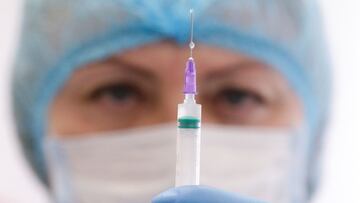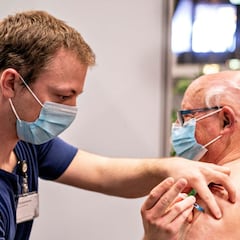How many blood clots and thrombosis incidents have been reported in the US after the vaccine?
Blood clots and low levels of blood platelets in those who have been vaccinated for Covid-19 are extremely rare but a cause for concern nevertheless.

While the probability of suffering a thrombosis (more commonly known as a blood clot) after receiving a Covid-19 vaccine is extremely rare (you are six times more likely to be struck by lightning...), health officials are sufficiently worried to have temporarily paused rollout of the J&J vaccine until more in-depth tests are carried out.
What medications or pain relievers are safe to take after the covid-19 vaccine?
Has the Johnson & Johnson vaccine been recalled?
Blood clots and adenovirus Covid-19 vaccines
A recent study conducted by Oxford University found the number of people who suffer blood clots after being vaccinated is roughly the same regardless of the vaccine used – even though the vaccines which are currently in use employ different technology.
The four vaccines which use adenovirus vector technology (Oxford-AstraZeneca, Janssen/Johnson&Johnson, CanSino Biologicals and Sputnik V) are the ones which have been linked to blood clots in patients although it still is an extremely rare occurrence. In the UK, out of 4.4 million people who received the Oxford-AstraZeneca vaccine, there have been 22 rare cases of thrombosis with low levels of blood platelets occurring about two weeks after vaccination – one of the known side effects of the vaccine.
One plausible explanation for the combination of blood clots and low blood platelets is an immune response, leading to a condition similar to one seen sometimes in patients treated with heparin. Studies are ongoing but researchers have determined that there is a direct link between developing blood clots in young women under the age of 30 – and particularly those who have already suffered Covid-19 infection or have other health issues such as diabetes.
You must seek urgent medical attention immediately if you have any of the following symptoms in the weeks after your injection:
shortness of breath
chest pain
leg swelling
persistent abdominal (belly) pain
neurological symptoms, such as severe and persistent headaches or blurred vision
tiny blood spots under the skin beyond the site of the injection.
Speak to your healthcare professional or contact your relevant national health authorities if you have any questions about the rollout of the vaccine in your country.
Six blood clot cases in the US
In the US, there have been six cases of blood clots following inoculation for Covid-19 – including a 48-year-old woman from Philidelphia who is believed to be suffering obesity . Those six cases are out of nearly 7 million doses administered so far in the United States. In a statement, the Food and Drug Administration confirmed that all six cases occurred among women between the ages of 18 and 48, and symptoms occurred 6 to 13 days after vaccination. FDA Director Dr. Peter Marks explained that symptoms averaged about a week to nine days after vaccination, but not longer than three weeks.
Related stories
On Tuesday, 13 April, the US Centers for Disease Control and Prevention (CDC) and FDA recommended "pausing" in the use of the single-dose Johnson & Johnson Covid-19 vaccine until more about its relation to blood clotting is known. As of 13 April 2021, no cases have been reported among the more than 180 million people who received the Pfizer-BioNTech or Moderna vaccines. No one will receive the J&J vaccine until a full report has been conducted.
Find out if you are eligible to get vaccinated and find a vaccination location near where you live to schedule an appointment by using the VaccineFinder here:

